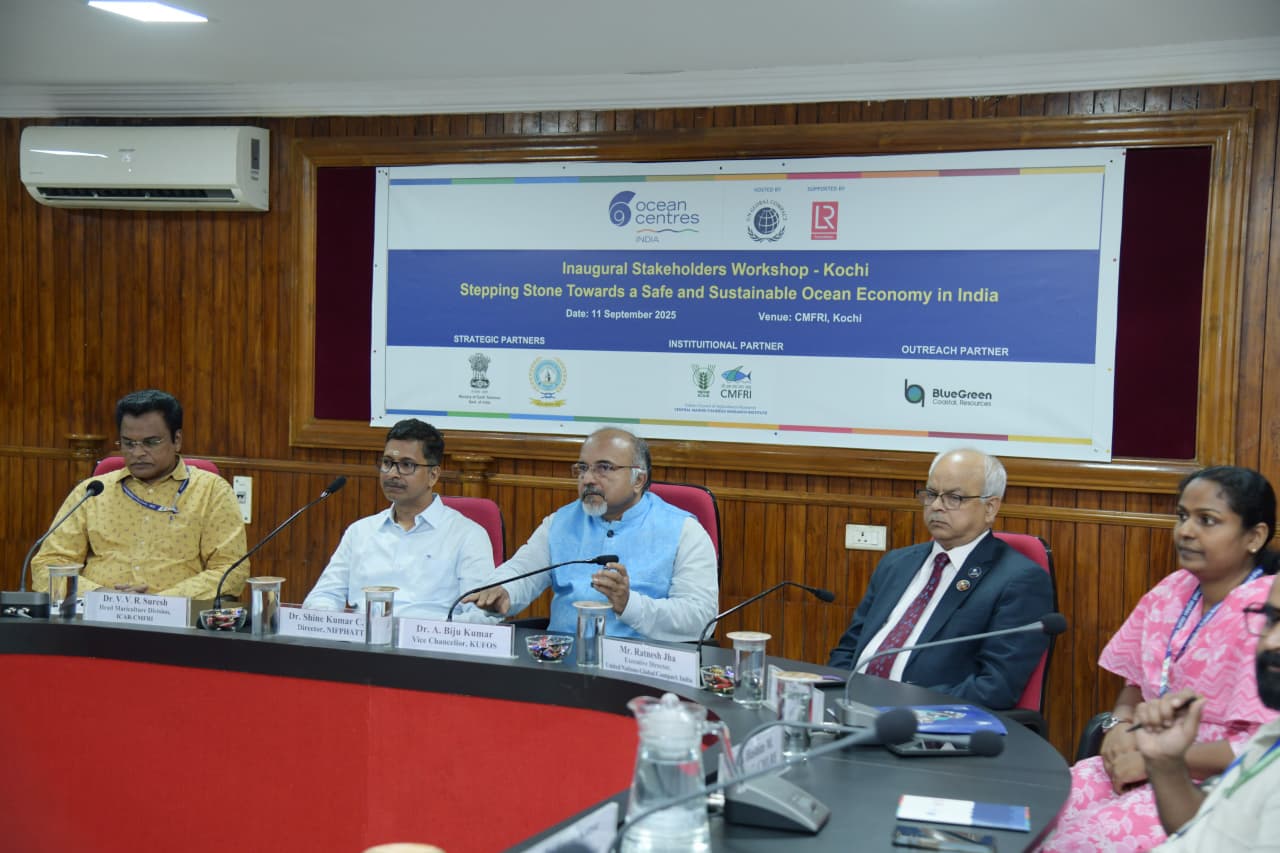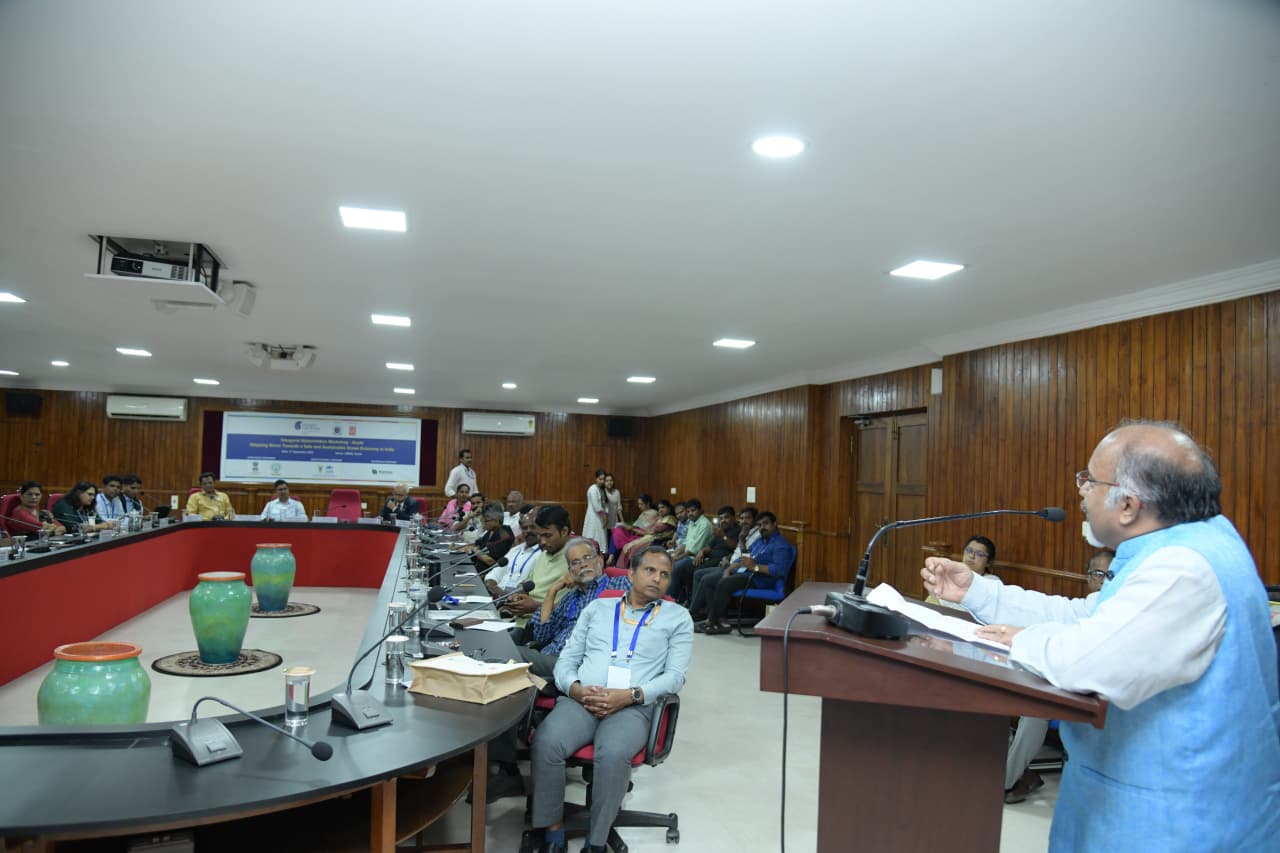Special Service and Features
From weather forecasts to boat building, traditional knowledge key in marine fisheries, say experts
Posted On:
11 SEP 2025 5:03PM by PIB Thiruvananthpuram
Kochi: From weather forecasts to boat building, age-old traditional knowledge of coastal communities can deliver significant contributions to the safety and sustainability of India’s marine fisheries, according to marine experts.
They were of the view that integrating traditional knowledge of fishermen with scientific technology, including satellite modelling and remote sensing could offer localised weather warnings and monsoon forecasts directly benefiting the fishing community and enhancing safety at sea.
A panel of experts in marine fisheries, shipping and port sectors presented their views at a stakeholder workshop held at ICAR-Central Marine Fisheries Research Institute (CMFRI) on Thursday. The workshop featured two panel discussions on key topics: Safety and Sustainability in Fisheries and Aquaculture, and the Impacts and Challenges of the Port and Shipping sector.
According to experts, traditional fishermen can read the subtle signs of the sea and sky making them capable of predicting climate patterns and fish availability
“For generations, fishermen have relied on their deep understanding of the sea by observing wind direction, ocean currents and phenomenon such as sea swell to predict weather and locate fish”, said Dr A Biju Kumar, Vice Chancellor of Kerala University of Fisheries and Ocean Studies (KUFOS) who inaugurated the workshop.
Traditional Techniques of ‘Khalasis’
Combining this knowledge with modern science could also be used for the art of boat building. Kerala's "Khalasis" are globally renowned for their traditional expertise in constructing the legendary "uru" boats without modern blueprints or machinery. Their techniques, passed down through generations, could be studied and documented to create a new, hybrid approach to maritime engineering, Dr Biju Kumar said.
The meet identified illegal, unreported and unregulated (IUU) fishing as a grave threat to India’s marine resources. Highlighting the role of technology in combating this menace, KUFOS VC suggested that innovative solutions could help monitor fishing activities and ensure the long-term health of fish stocks.
The stakeholders felt the need for a holistic and participatory approach to deal with climate change which, according to them, significantly weakened monsoon dynamics leading to high temperatures and a disruption in the process of upwelling.
Engaging the community and drawing on their collective participation would be the best way to develop effective and sustainable solutions for the challenges in the sector in the face of the climate crisis, they suggested.
Given the damage that hard structures cause to delicate coastal ecosystems, the panellists recommended hybrid solutions, specifically bio-fencing and bio-shielding which use natural and indigenous materials.
Flagging the critical threat of increased amount of plastic pollution, the panellists called for creating a ‘Blue Brigade’ with women from coastal communities for leading efforts to keep coastal areas plastic free, identifying women’s central role in households to spread awareness about sustainability and safety.
The discussions also highlighted the need for stakeholder involvement in policy decisions and implementation.
The workshop was jointly organised by Ocean Centres India in collaboration with UN Global Compact Network India and CMFRI. The workshop featured panelists from various sectors, who offered their insights. National Institute of Fisheries Post Harvest Technology and Training (NIFPHATT) Director Dr Shine Kumar C S, Dr V V R Suresh, Ratnesh Jha, Dr Ravi Raj Atrey, Dr Shoba Joe Kizhakudan and Dr Remya L spoke.


**
(Release ID: 2165710)